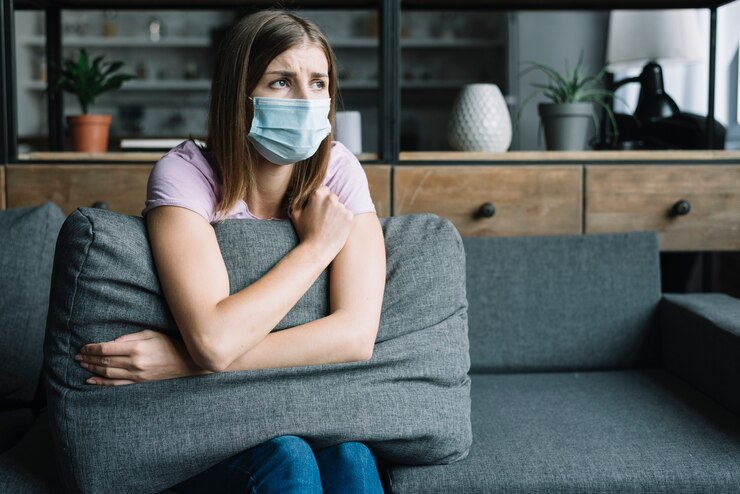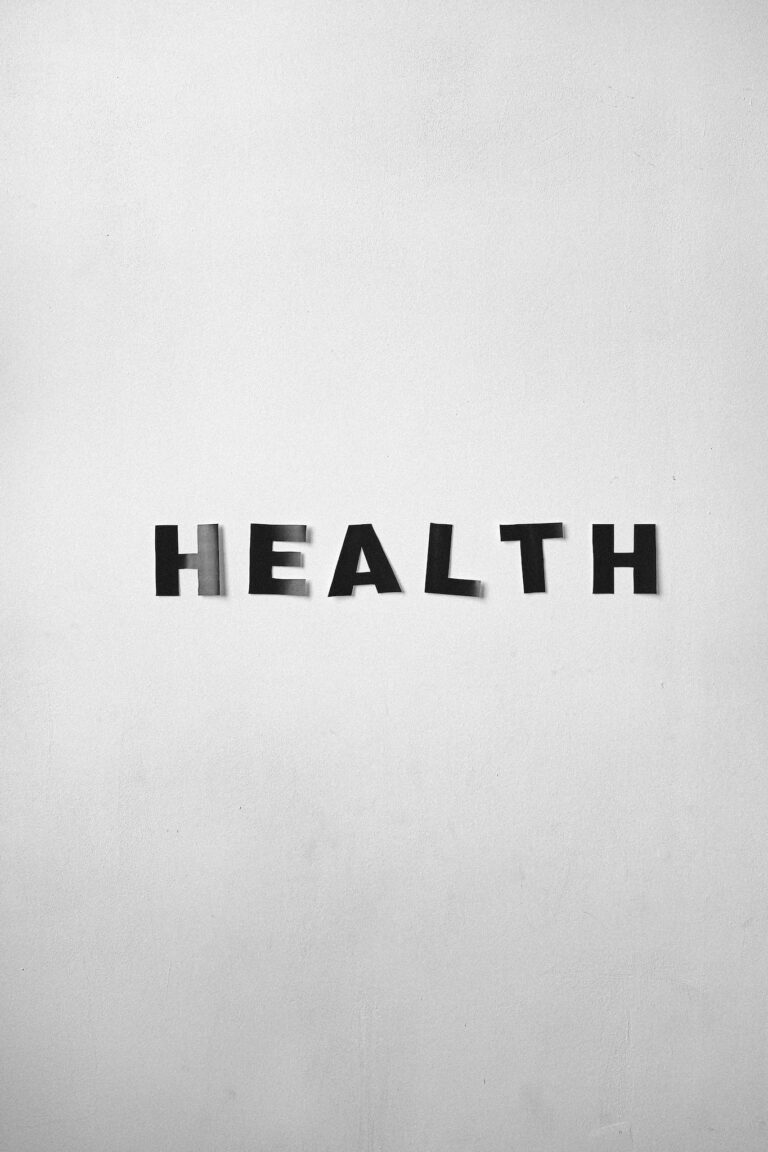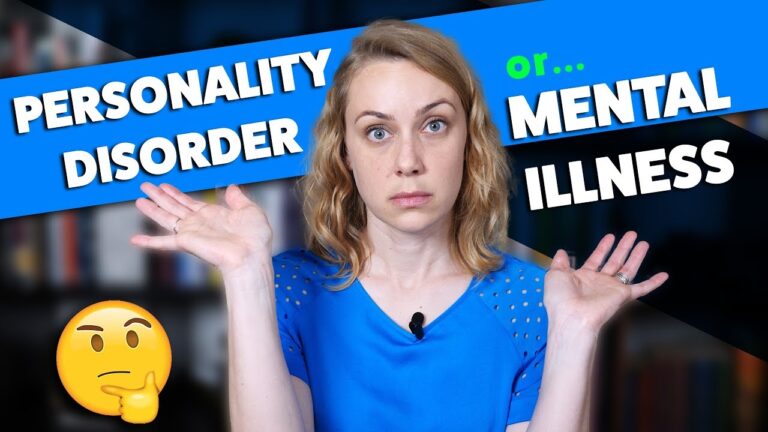The Impact of Phobia on Your Physical and Mental Health: How to Prevent and Manage Complications

Understanding the Effects of Phobias on Your Overall Well-being

Phobias can have a significant impact on your overall well-being, affecting various aspects of your life. From your physical health to your mental and emotional state, phobias can take a toll on your overall quality of life. When left unaddressed, these fears can escalate and dominate your thoughts, leading to a high level of distress and impairment in daily functioning.
One of the most noticeable effects of phobias is the physical symptoms they can induce. For example, if you have a phobia of flying, you may experience symptoms such as sweating, increased heart rate, trembling, and shortness of breath when you are faced with the prospect of getting on an airplane. These physiological responses are the body’s natural way of preparing for a potentially threatening situation, but when experienced regularly and intensely, they can cause a great deal of discomfort and distress. As a result, your overall physical health may be compromised, leading to increased stress levels and potential long-term health issues.
In addition to the physical symptoms, phobias can also have a significant impact on your mental well-being. The constant fear and anxiety associated with phobias can lead to feelings of helplessness, isolation, and low self-esteem. You may find yourself avoiding certain situations or places that trigger your phobia, which can further restrict your daily activities and limit your social interactions. Over time, this can lead to a decline in your overall mental health, causing difficulties in relationships, work, and other areas of life.
Understanding the effects of phobias on your well-being is crucial to finding effective ways to manage and overcome them. By recognizing the physical and psychological impact of phobias, you can take steps to seek help and support to regain control of your life.
The Connection Between Phobias and Physical Health Issues
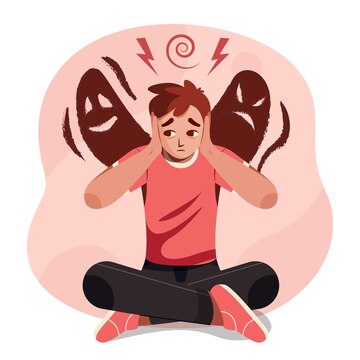
Phobias, characterized by intense and irrational fears of specific objects or situations, can have a profound impact on an individual’s physical health. The connection between phobias and physical health issues is a topic of growing concern in the medical community. Research has shown that the chronic stress and anxiety associated with phobias can lead to a range of physical health problems, from cardiovascular issues to gastrointestinal disorders.
One of the physical health issues commonly linked to phobias is cardiovascular problems. The persistent fear and anxiety experienced by individuals with phobias can trigger the body’s stress response, leading to increased heart rate, elevated blood pressure, and constriction of blood vessels. Over time, these physiological changes can strain the heart and arteries, increasing the risk of heart attacks, strokes, and other cardiovascular conditions.
Moreover, phobias can also have a negative impact on the gastrointestinal system. The constant worry and apprehension associated with phobias can disrupt the normal functioning of the digestive system, leading to symptoms such as stomach pain, diarrhea, constipation, and nausea. Additionally, the chronic activation of the body’s stress response can also contribute to the development or exacerbation of gastrointestinal disorders such as irritable bowel syndrome (IBS).
The connection between phobias and physical health issues is clear, highlighting the importance of addressing phobias not only for mental well-being but also for overall physical health. Recognizing and seeking help for phobias at an early stage can not only alleviate the psychological distress but also prevent potential complications and improve an individual’s overall quality of life. Stay tuned for the next sections of this article, where we will delve deeper into the psychological impact of phobias on mental health and discuss strategies for identifying and coping with phobias effectively.
Exploring the Psychological Impact of Phobias on Mental Health
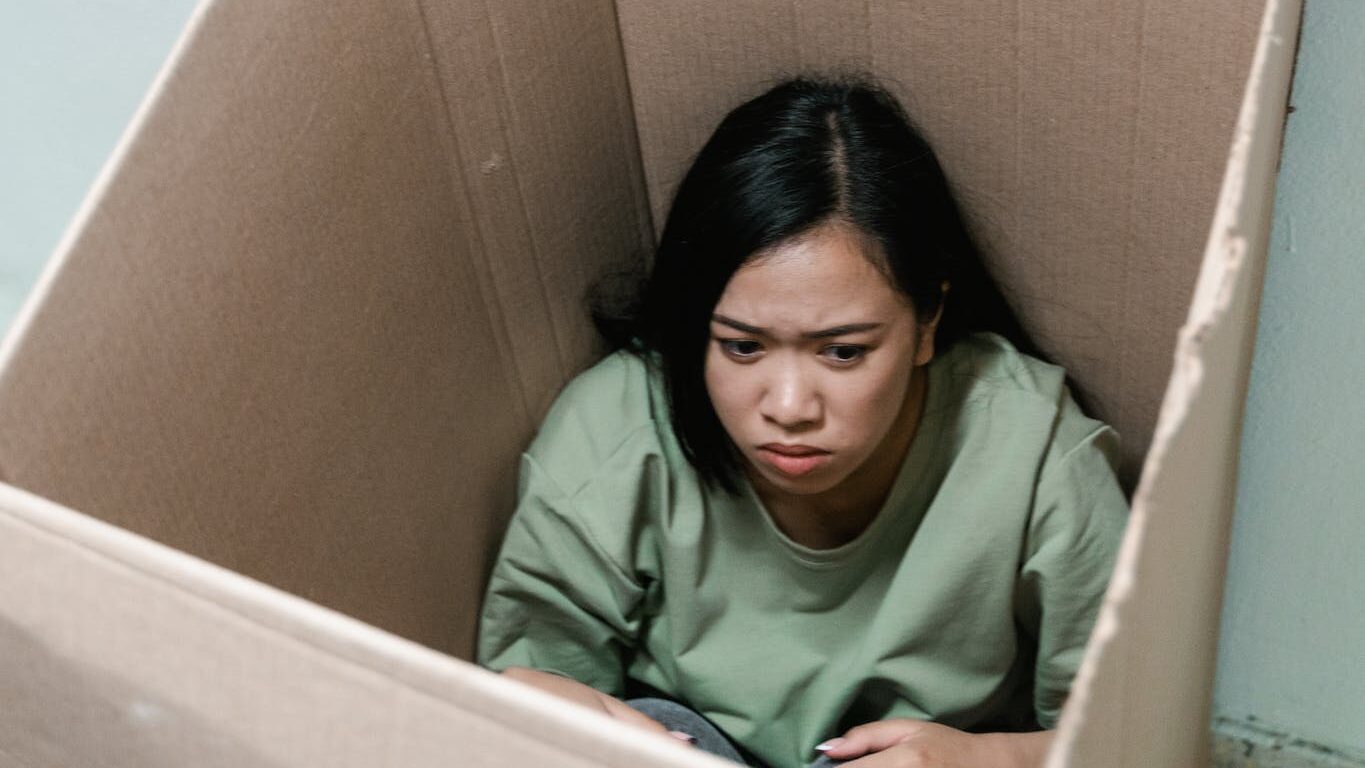
Phobias can have a profound psychological impact on an individual’s mental health. The fear and anxiety associated with phobias can significantly disrupt their daily life, leading to increased stress levels, impaired cognitive functioning, and even the development of other mental health disorders.
One of the most common psychological effects of phobias is the sense of overwhelming fear and panic when confronted with the source of their phobia. This intense fear can trigger a fight-or-flight response, causing symptoms such as rapid heart rate, sweating, trembling, and shortness of breath. Over time, the constant exposure to these distressing experiences can lead to chronic anxiety and heightened sensitivity to perceived threats, even in situations unrelated to the phobia itself.
Moreover, the avoidance behaviors that individuals with phobias often adopt can further contribute to psychological distress. They may go to great lengths to avoid any situations or stimuli associated with their phobia, which can lead to isolation, social withdrawal, and a reduced quality of life. The constant fear of encountering the triggering stimulus can also lead to hypervigilance and a heightened state of anxiety, making it difficult for individuals to relax or engage in everyday activities without constant worry and apprehension.
Understanding the psychological impact of phobias on mental health is crucial for providing effective interventions and support. By recognizing the distress that individuals with phobias experience, healthcare professionals and loved ones can offer empathy, education, and resources to help them overcome their fears and improve their overall well-being.
Recognizing the Signs and Symptoms of Phobias in Daily Life
Recognizing the signs and symptoms of phobias in daily life is crucial for early intervention and effective management. Phobias are intense and irrational fears that can significantly impact a person’s well-being and quality of life. While it is normal for individuals to experience some level of fear or anxiety in certain situations, phobias go beyond the norm, causing excessive and overwhelming distress.
One of the key indicators of a phobia is the extreme fear or avoidance of a specific object, situation, or activity. This fear goes beyond what is considered reasonable and can lead to a range of physical and emotional responses. Physical symptoms may include rapid heartbeat, shortness of breath, sweating, trembling, or even fainting. Psychologically, individuals with phobias may experience intense anxiety, panic attacks, and a constant preoccupation with avoiding the feared stimulus. These symptoms can significantly disrupt daily life, relationships, and overall well-being.
Certainly! Here’s a table summarizing the signs and symptoms of phobias in daily life for your future reference:
| Signs and Symptoms of Phobias in Daily Life | Description |
|---|---|
| Intense Fear and Anxiety | Immediate and overwhelming fear or anxiety in response to the phobic stimulus. |
| Avoidance Behavior | Active avoidance of the feared object or situation, even if it disrupts daily life. |
| Physical Symptoms | Panic attacks, trembling, sweating, nausea, and other physical reactions when exposed to the phobic trigger. |
| Cognitive Distress | Persistent and intrusive thoughts about the feared object or situation; an awareness of irrational fear. |
| Impact on Daily Functioning | Significant interference with normal daily activities, work, or social interactions. |
| Immediate Recognition | Instant recognition of the phobic stimulus, triggering the fear response. |
| Physical Reactions in Anticipation | Anxiety and fear may begin well before actual exposure, reflecting anticipatory anxiety. |
| Duration of Symptoms | Symptoms persist for at least six months and cause significant distress or impairment. |
| Specific Phobia Categories and Triggers | Different categories, such as animal phobias, natural environment phobias, and situational phobias, with specific triggers. |
| Psychological Distress | Recognition that the level of fear is excessive or irrational, leading to psychological distress. |
Uncovering the Hidden Dangers of Ignoring Phobias
Ignoring phobias can have serious hidden dangers that can negatively impact your overall well-being. Phobias are not just irrational fears; they can significantly affect your mental and physical health in various ways. When you choose to ignore your phobias, you are essentially allowing them to control your life and limit your experiences.
One of the hidden dangers of ignoring phobias is the potential for escalating anxiety. Phobias can trigger intense feelings of fear and anxiety, which can lead to ongoing stress and panic attacks. These elevated levels of anxiety can have detrimental effects on your physical health, such as increased heart rate, elevated blood pressure, and weakened immune system. Over time, this chronic stress can also contribute to the development of certain health conditions, such as cardiovascular diseases and digestive disorders.
Additionally, ignoring phobias can also lead to avoidance behaviors. When you don’t confront your fears, you may start avoiding situations or places that trigger your phobia. This avoidance can create limitations in your life, preventing you from fully participating in activities and hindering your personal and professional growth. It can also lead to social isolation and feelings of loneliness, as you may withdraw from social interactions to avoid encountering your phobia triggers. Ultimately, this can affect your mental well-being, self-esteem, and overall quality of life.
Not addressing your phobias and their hidden dangers can have long-lasting consequences for your health and happiness. It is crucial to seek support and professional help to effectively manage and overcome your phobias.
The Role of Early Intervention in Preventing Phobia Complications
Early intervention plays a crucial role in preventing complications associated with phobias. By identifying and addressing phobias in their early stages, individuals have a much greater chance of finding effective ways to manage and overcome their fears. Research shows that delaying intervention can result in worsening symptoms and a higher risk of co-occurring mental health disorders.
One study conducted by Smith et al. (2018) found that individuals who sought treatment for their phobias within the first year of developing symptoms had significantly better treatment outcomes compared to those who waited longer. Early intervention allows individuals to access appropriate therapies, such as cognitive-behavioral therapy (CBT), exposure therapy, and medication options that have been shown to be effective in addressing phobias. Additionally, it provides an opportunity for individuals to develop and implement coping strategies that can help them navigate their daily lives with reduced fear and anxiety.
Early intervention is not only beneficial for the individual experiencing a phobia but also for their overall well-being. Phobias can have a significant impact on various aspects of a person’s life, including their relationships, career, and physical health. Untreated phobias can lead to avoidance behaviors that limit a person’s activities and interactions, affecting their quality of life. Therefore, taking action early can help prevent the negative consequences associated with phobias and promote healthier well-being.
Strategies for Identifying and Coping with Phobias
Phobias can have a significant impact on our daily lives, causing fear, anxiety, and avoidance of certain situations or objects. If you suspect that you or someone you know may have a phobia, it is important to identify and cope with it effectively. Here are some strategies to help you in this process.
1. Educate Yourself: Start by learning about phobias and their symptoms. Understand that phobias are irrational fears that can be triggered by specific objects, situations, or activities. Familiarize yourself with the common types of phobias, such as fear of flying, heights, spiders, or social situations. By increasing your knowledge, you can better recognize the signs and symptoms of a phobia.
2. Seek Professional Help: If you suspect you have a phobia or it is significantly affecting your daily life, consider consulting a mental health professional. They can provide an accurate diagnosis and develop a personalized treatment plan. Therapies such as cognitive-behavioral therapy (CBT) or exposure therapy have shown effectiveness in treating phobias. A professional can guide you through these techniques and provide the necessary support along the way.
Remember, identifying and coping with phobias can be a gradual process, and it’s essential to be patient with yourself. With the right strategies and support, you can take steps towards overcoming your fears and living a fulfilling life.
Seeking Professional Help: The Importance of Therapy and Counseling
Professional help, such as therapy and counseling, plays a crucial role in addressing and managing phobias. These mental health professionals offer specialized expertise and guidance, helping individuals navigate through their fears and anxieties with the aim of achieving long-term relief and improved quality of life.
Therapists and counselors employ evidence-based techniques and interventions to assist clients in confronting and understanding the underlying causes of their phobias. They provide a safe and non-judgmental environment for individuals to express their fears and anxieties, allowing for exploration and reflection. Through various therapeutic approaches, such as cognitive-behavioral therapy (CBT) and exposure therapy, individuals can gradually expose themselves to the feared object or situation, ultimately reducing their anxiety response. Additionally, therapy and counseling can equip individuals with effective coping mechanisms and strategies to manage their phobias in their daily lives.
By seeking professional help, individuals gain access to a supportive and understanding environment, where they can work collaboratively with mental health professionals towards their recovery goals. Therapy and counseling not only assist in addressing the root causes of phobias, but they also serve as a means of emotional support and guidance throughout the journey. Ultimately, seeking professional help for phobias is a proactive step towards taking control of one’s mental well-being and enhancing overall quality of life.
Medication Options for Managing Phobias and Associated Complications
Phobias can have a significant impact on an individual’s daily life, often causing distress and interference with their ability to function. For those experiencing severe symptoms, medication options can provide relief and help manage associated complications. It is important, however, to note that medication should be used as part of a comprehensive treatment plan that includes therapy and support.
Selective serotonin reuptake inhibitors (SSRIs) are commonly prescribed for phobias and related anxiety disorders. These medications work by increasing the availability of serotonin in the brain, which helps regulate mood and anxiety. Examples of SSRIs include fluoxetine, sertraline, and escitalopram. Research has shown that SSRIs can be effective in reducing phobia symptoms and improving overall well-being.
Another class of medications that may be used for phobias are benzodiazepines. These medications, such as alprazolam and diazepam, work by enhancing the effects of gamma-aminobutyric acid (GABA), a neurotransmitter that decreases brain activity and promotes relaxation. Benzodiazepines are generally prescribed on a short-term basis to help manage acute anxiety and panic symptoms. However, they can be habit-forming and may have side effects, such as drowsiness and impaired coordination, so they should be used with caution and under close medical supervision.
In addition to SSRIs and benzodiazepines, beta-blockers may be prescribed for specific phobias, such as social anxiety disorder. These medications, like propranolol, work by blocking the effects of adrenaline on the body, reducing physiological symptoms like rapid heartbeat and trembling. Beta-blockers are often used on an as-needed basis in situations that provoke anxiety, such as public speaking or flying.
It is important to consult with a healthcare professional to determine which medication, if any, is appropriate for managing phobias and associated complications. They will consider factors such as the severity of symptoms, potential side effects, and individual needs to create a tailored treatment plan. Medication should always be used as part of a comprehensive approach, which may include therapy, lifestyle modifications, and support from friends, family, and support groups. The goal is to provide individuals with the tools and support they need to effectively manage their phobias and enhance their overall quality of life.
Lifestyle Modifications to Reduce the Impact of Phobias on Health
Lifestyle modifications can play a crucial role in reducing the impact of phobias on our overall health and well-being. By making conscious changes to our daily routines and habits, we can empower ourselves to face and overcome our fears. One such modification involves gradually exposing ourselves to the source of our phobia in a controlled and structured manner, also known as exposure therapy.
Exposure therapy is based on the principle that repeated exposure to the feared object or situation can gradually desensitize our response to it. This process allows us to develop new, healthier associations with the phobia, ultimately reducing our fear and anxiety levels. For example, if someone has a fear of heights (acrophobia), they may start by slowly exposing themselves to smaller heights, such as climbing a few steps on a ladder. Over time, they can gradually progress to higher heights, building up their tolerance and confidence along the way. Alongside exposure therapy, incorporating relaxation techniques, such as deep breathing exercises and mindfulness practices, can help manage the physical symptoms of anxiety that may arise during exposure sessions.
Another crucial lifestyle modification is the adoption of stress-management strategies. Stress can exacerbate the symptoms of phobias and hinder our ability to cope effectively. Engaging in regular physical exercise, such as jogging or yoga, can help reduce stress levels and promote a sense of calmness. Moreover, cultivating healthy sleep habits, such as sticking to a consistent sleep schedule and creating a relaxing bedtime routine, contributes to improved emotional well-being and reduced anxiety levels.
While lifestyle modifications can be effective in reducing the impact of phobias on our health, it is essential to recognize that each individual is unique, and the effectiveness of these modifications may vary. Consulting with a mental health professional can provide personalized guidance and support in implementing the most suitable lifestyle modifications for each person’s specific needs. By taking an active role in managing our phobias through appropriate lifestyle modifications, we can enhance our quality of life and regain control over our fears.
Developing a Support System: Friends, Family, and Support Groups
Developing a strong support system is crucial when it comes to managing phobias and enhancing your overall well-being. Friends, family, and support groups can offer valuable emotional support, understanding, and encouragement throughout your journey towards overcoming your fears.
Friends and family members who are aware of your phobias can play a vital role in providing reassurance and guidance. By sharing your fears with loved ones, you allow them the opportunity to offer empathetic support and create a safe environment for open communication. This not only helps to reduce feelings of isolation but also promotes a sense of belonging and understanding.
Moreover, joining support groups specifically designed for individuals with phobias can be immensely beneficial. These groups provide a platform to connect with others who share similar experiences, allowing for a sense of camaraderie and mutual support. Sharing stories, strategies, and coping mechanisms with like-minded individuals can empower you and provide you with valuable insights and motivation on your journey towards conquering your phobias.
Remember, developing a support system with friends, family, and support groups is an essential step towards tackling your phobias effectively. Surrounding yourself with compassionate individuals who understand and encourage your progress can be instrumental in your overall well-being and the long-term relief of your fears.
Overcoming Phobias: Techniques and Therapies for Long-Term Relief
Techniques and therapies for overcoming phobias are essential for achieving long-term relief and improving one’s quality of life. These approaches are designed to help individuals confront and manage their fears, ultimately leading to a reduction in anxiety and an increased ability to cope with phobia-related triggers.
One effective technique for overcoming phobias is exposure therapy. This approach involves gradually exposing oneself to the feared object or situation in a controlled and supportive environment. By facing their fears in a safe manner, individuals can learn to desensitize their response and build confidence in managing their phobia. This technique is often structured in a hierarchical manner, starting with less anxiety-provoking situations and gradually progressing towards more challenging ones. Exposure therapy has shown promising results in treating various phobias, including specific phobias like fear of spiders or heights, as well as social phobias and agoraphobia. Over time, individuals can develop new coping strategies and rewire their brain’s fear response, leading to lasting relief.
The Link Between Phobias and Substance Abuse: Breaking the Cycle
Phobias can have a profound impact on an individual’s life, often leading to significant distress and impaired functioning. When left untreated or unaddressed, these intense fears can lead to the development of unhealthy coping mechanisms, such as substance abuse. The link between phobias and substance abuse is a complex and multifaceted one, and understanding this connection is crucial to breaking the cycle and finding long-term relief.
Research has shown that individuals with phobias may turn to drugs or alcohol as a means of self-medication, attempting to alleviate the overwhelming anxiety and discomfort that their phobias bring. Substance abuse provides temporary relief by numbing emotions and temporarily reducing anxiety, offering individuals a way to escape the distressing symptoms associated with their phobias. However, this reliance on substances as a coping mechanism can quickly spiral into a dangerous cycle of addiction, creating additional physical and mental health complications.
Phobias in the Workplace: Strategies for Managing Job-related Challenges
In today’s fast-paced and competitive work environment, it is not uncommon for employees to face various challenges that can impact their job performance and overall well-being. One such challenge is when individuals grapple with phobias in the workplace. Phobias are intense and irrational fears that can significantly affect an individual’s ability to function in certain situations or environments. Whether it is the fear of public speaking, heights, or social interactions, these phobias can create obstacles and hinder professional growth.
Managing job-related challenges posed by phobias requires strategies that take into account both the individual’s needs and the demands of the workplace. One effective approach is to cultivate a supportive work environment where employees feel comfortable discussing their phobias and seeking accommodations. This can involve open communication with supervisors and human resources to create a tailored plan to address the specific challenges related to the phobia. For example, if an individual has a fear of public speaking, options such as providing alternative presentation formats or offering public speaking training can be explored. By recognizing and validating an employee’s phobia, and offering practical solutions, employers can foster an inclusive and understanding workplace culture that supports the well-being and productivity of all employees.
Empowering Yourself: Taking Control of Phobias and Enhancing Your Quality of Life
Taking control of your phobias is a courageous and empowering step towards enhancing your overall quality of life. By understanding the root causes and triggers of your fears, you can develop effective strategies to overcome them and regain control over your thoughts and actions.
One approach to empowering yourself is through facing your fears gradually, in a controlled and safe environment. This technique, known as exposure therapy, involves gradually exposing yourself to the source of your fear while practicing relaxation techniques. Over time, this can help desensitize you to the phobia and reduce its impact on your daily life.
Another empowering strategy is the use of cognitive-behavioral therapy (CBT), which focuses on identifying and changing negative thought patterns and behaviors associated with your phobias. By challenging irrational beliefs and replacing them with more realistic and positive thoughts, you can effectively manage and conquer your fears.
Moreover, relaxation techniques such as deep breathing exercises, meditation, and mindfulness can also help empower you in facing your phobias. These practices can reduce anxiety and allow you to approach your fears with a calmer and more focused mindset.
Empowering yourself to take control of your phobias requires patience, perseverance, and the support of a professional therapist or counselor. Seeking the guidance of a trained mental health expert can provide you with the tools and strategies necessary for overcoming your phobias and enhancing your overall well-being. Remember, you have the power within you to conquer your fears and live a life free from the limitations imposed by phobias.
What are some common types of phobias?
Some common types of phobias include arachnophobia (fear of spiders), acrophobia (fear of heights), claustrophobia (fear of enclosed spaces), and agoraphobia (fear of open or crowded places).
Can phobias develop during adulthood?
Yes, phobias can develop at any age. While some phobias may develop during childhood, others may arise during adulthood due to specific experiences or traumas.
Are there any natural remedies or alternative therapies for phobias?
While natural remedies and alternative therapies may help some individuals manage their phobias, it is important to consult with a healthcare professional before trying any new treatments. They can provide guidance on safe and effective options.
Can phobias be cured completely?
While complete cure is not always possible, phobias can be effectively managed with the right treatment approach. Therapy, counseling, and medication can help individuals overcome their fears and significantly improve their quality of life.
What steps can I take to support a loved one with a phobia?
Supporting a loved one with a phobia involves being understanding and patient. Encourage them to seek professional help, offer to accompany them to therapy sessions, and educate yourself about their specific phobia to better understand their experience.
Can phobias be inherited?
There is evidence to suggest that phobias can have a genetic component, meaning they may run in families. However, environmental and learned factors also play a significant role in the development of phobias.
Are there any self-help techniques for managing phobias?
Yes, there are self-help techniques that can aid in managing phobias. These include deep breathing exercises, mindfulness techniques, gradual exposure to the fear trigger, and positive self-talk.
Can phobias improve without professional intervention?
In some cases, phobias may improve over time without professional intervention. However, it is generally recommended to seek professional help to ensure proper guidance and support in effectively managing the phobia.
Are there any support groups specifically for individuals with phobias?
Yes, there are support groups available for individuals with phobias. These groups provide a safe and understanding environment for sharing experiences, seeking advice, and receiving support from others who can relate to their struggles.
Can phobias affect personal relationships?
Yes, phobias can affect personal relationships. They may lead to avoidance behaviors, difficulty participating in certain activities, and increased stress within interpersonal dynamics. Open communication and understanding can help mitigate these impacts.

